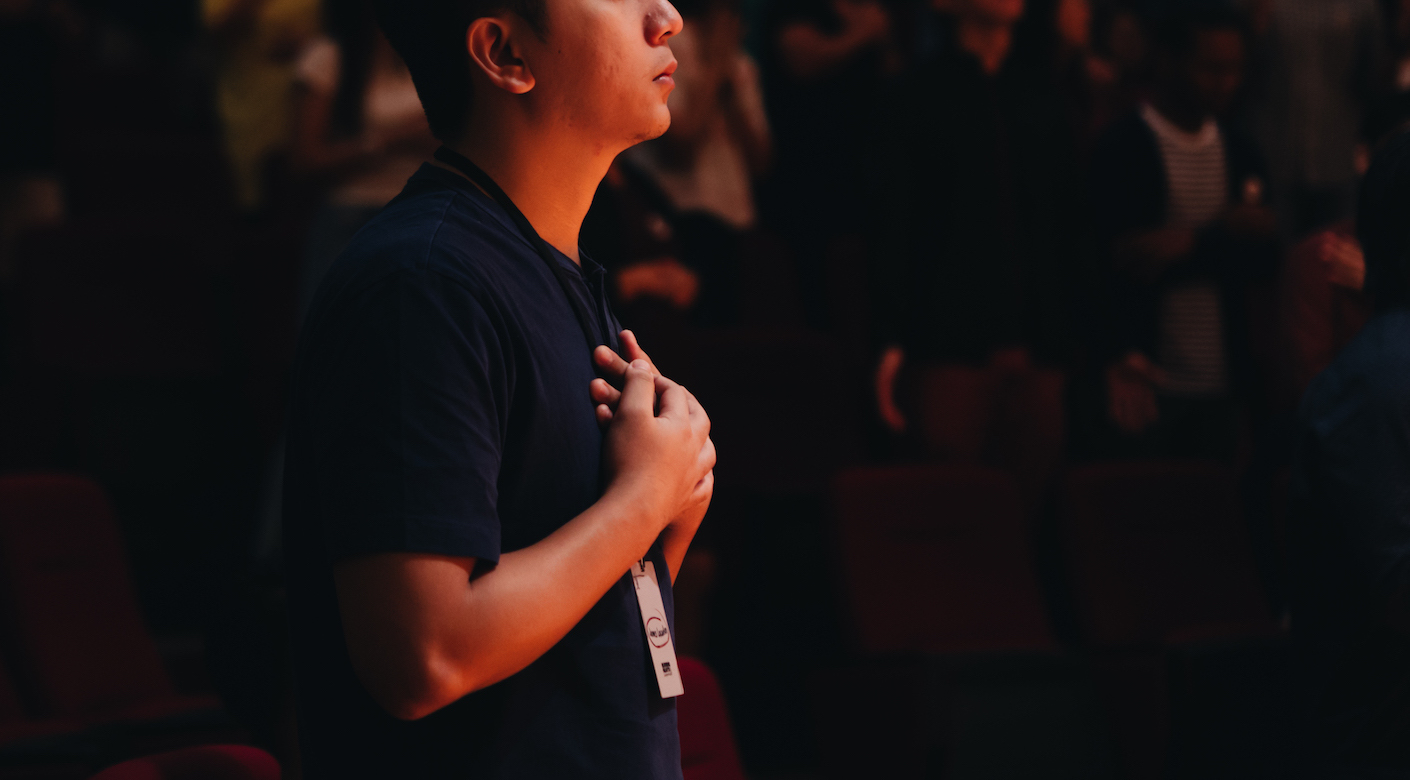For eight long years, Elijah Choi laboured in the All Nations Prayer Room in the International House of Prayer (IHOP) of Kansas City as an unknown Korean boy who had watched his own father pray for up to eight hours a day.
It was in this particular prayer room, which saw about just five people a day, that a fire was lit in Choi’s heart as he sought the Lord on what the house of prayer was even about, and if he would still do it if its leaders stopped or never noticed him.
Instead of answering his insistent questions, God started revealing through Scripture and revelation why the house of prayer was even part of our ministry to Him while we are on earth – and ultimately, how we are to carry out the Great Commission in preparation for the Lord’s Second Coming.
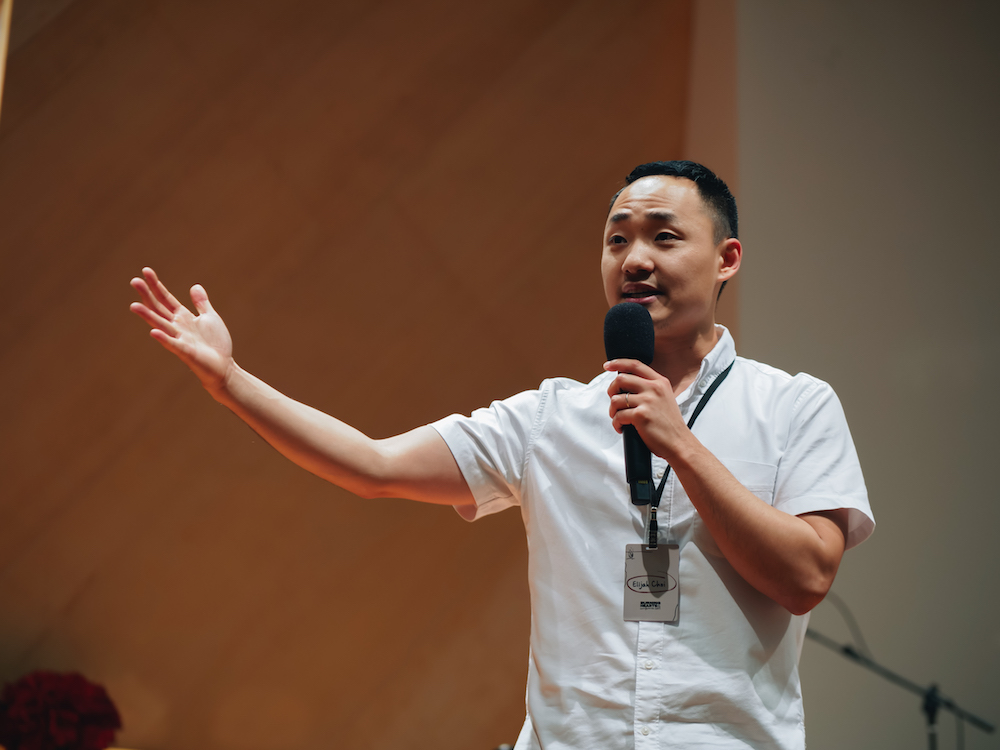
START WITH THE END IN MIND
An older leader had shared this with him: “Young man, start with the end in mind.” This got Choi thinking about the reason for the prayer movement and what it was achieving in line with God’s desires.
“You have to know where you’re going before you start the journey, before you sacrifice and invest and labour for it,” Choi elaborated. “Know what is the ultimate purpose and where you’re trying to get to.”
“If you don’t start with the end in mind, well-intended labour and sacrifice can end up in the wrong direction.”
Using an analogy from a drive across the Midwest that took a painful 24 hours, he described how he had survived despite the long empty plains he had to drive his friends through. He had kept a picture of Laguna Beach, California, on his phone – which gave him motivation to keep heading in that direction.
“If you don’t start with the end in mind, well-intended labour and sacrifice can end up in the wrong direction.”
He then referenced Ephesus in Revelation 2. The revival in the church was greater than in the cities of Jerusalem or Antioch, yet the Lord warned that they had strayed from their first love.
“I know your work … But I have this against you, that you have abandoned the love you had at first. Remember therefore from where you have fallen; repent, and do the works you did at first. If not, I will come to you and remove your lamp stand from its place, unless you repent.” (Revelation 2:2-5 ESV)
“Prophetic promises aren’t guaranteed. If you do not start with the end in mind, you may potentially miss your destiny.”
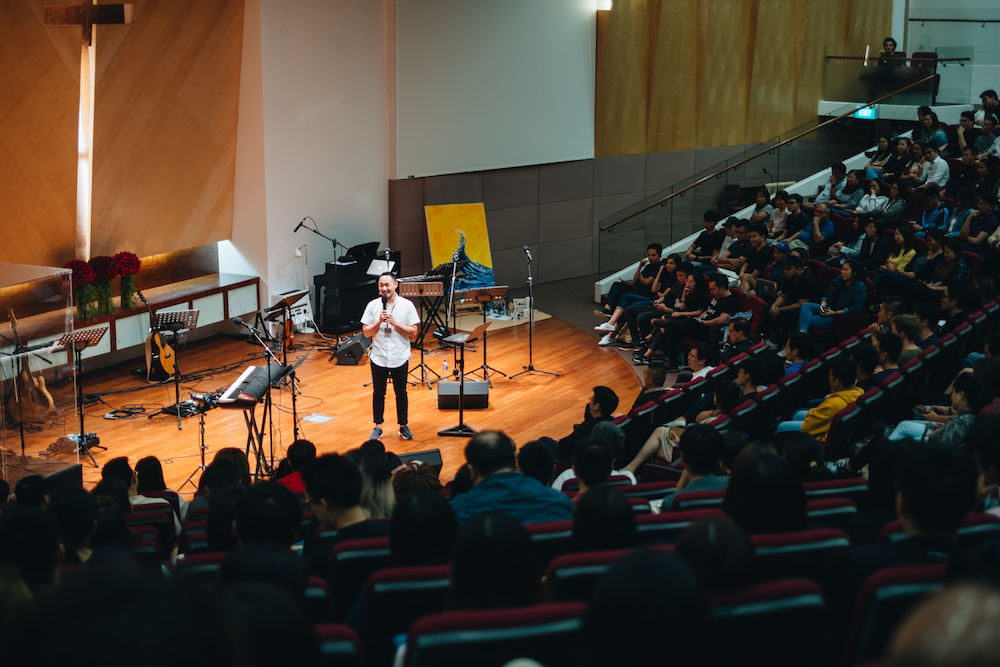
DON’T LOSE THE PLOT
So what is that “end” that we’re doing all this for? Clearly we cannot just be doing ministry because God wants us to just do it.
“The Bible is not Nike,” Choi said with passion. “He doesn’t say just do 24/7 prayers. The priests in Malachi were doing that but God said shut the doors of the temple!”
“Oh that there were one among you who would shut the doors, that you might not kindle fire on my altar in vain! I have no pleasure in you, says the Lord of hosts, and I will not accept an offering from your hand.” (Malachi 1:10 ESV)
It’s not the act but the heart behind it – the priests in Malachi were offering defiled sacrifices and shoddily keeping to practices in order to just get the holy ceremonies done. They had neglected the reason why they were even tasked to do these things in the first place.
“The Lord doesn’t say do it. He says do it with the end in mind, so what is God wanting to produce and display in this generation?” Choi asked. “What is the chief end that God desires of the house of prayer?”
KNOW THE BIG PICTURE
Through hours and years of soaking in Scripture at IHOP, Choi started seeing patterns throughout the Word that pointed towards God’s desired end. The Bible gives us the big picture, and all 66 of its books are connected, he taught. “I say it’s 66 pieces of one story.”
He emphasised the importance of sieving out the big picture through all of Scripture – not just parts of it – by comparing this to watching a movie such as Taken in the middle and not from the start.
If one misses the beginning, the movie looks like it’s about one man killing a lot of people. But if you watch it in its totality, it’s not a killing but a rescue. All the killing was an expression of a father’s love for his daughter.
“In the battle of Armageddon, do you see a killing Jesus or a passionate bridegroom?” Choi asked, in reference to the end times recorded in the book of Revelation.
It really depends if we’re studying the Bible in full. This will give us a critical picture for why we do any kind of ministry on earth – a key to the “end” of our work on earth.
IT STARTS AND ENDS WITH A WEDDING
Choi discovered a pattern: The story of the Bible has significant recurring imagery of a wedding – and not just in Revelation, where the Bridegroom, Jesus, comes back for His Bride, the Church. The very first book, Genesis, also begins with a wedding in a chamber called the Garden of Eden, where God and man were to become one another’s belonging, he shared.
The commission to fill the earth with people who would walk in perfect communion with their God was not given after man left the Garden because of sin – but before. It was the original plan.
“Missions is not about poor human beings who are going to die and us needing to rescue them with the Gospel.”
“Mission did not begin when man failed. It was not a solution for the lake of fire,” Choi urged. “When we talk about frontier missions, it’s not about poor human beings who are going to die and us needing to rescue them with the Gospel.
“When man was perfectly fine in the utopia of Eden, God commissioned man to multiply and fill the earth. The Great Commission is not fire insurance.”
This is our first big clue for the message of the Bible to us as we await Jesus’ return: God’s burning longing to be with man captured in this phrase that appears many times throughout the Bible, almost like a wedding vow: “I will be their God, and they shall be my people.”
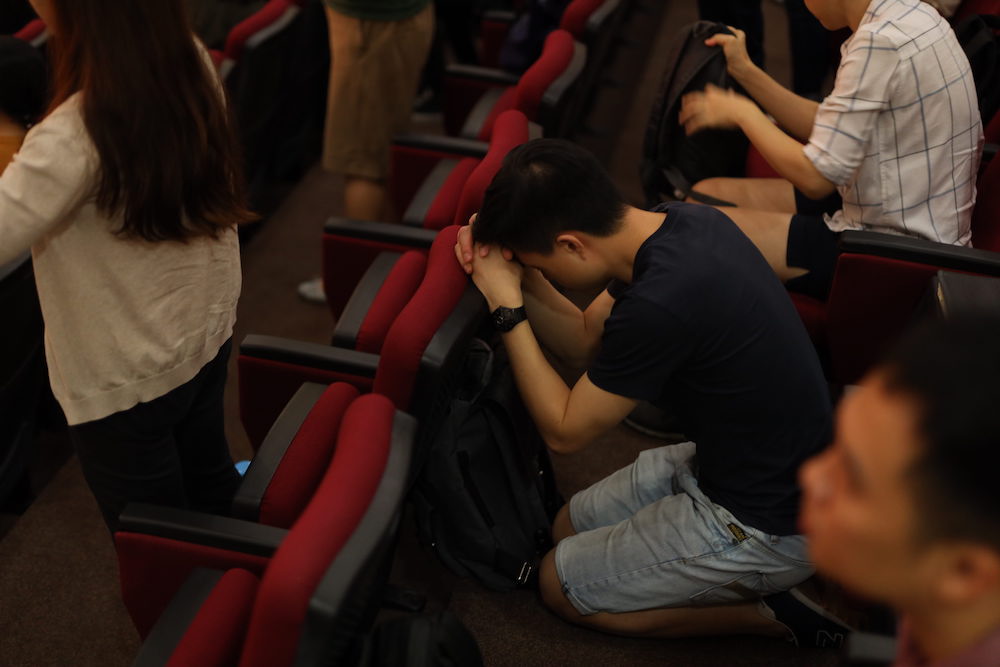
A second picture of marriage happens again in Exodus 24, after God gives Moses rules and laws on Mount Sinai. Moses brings these words to the people, they agree to living by them, and ceremonially he sprinkles blood on the altar and the people too. Then he and 70 elders go back up the mountain to eat and drink and worship God.
“That was a preview of the marriage supper of the Lamb,” Choi said. “It was a wedding reception on the mountain.” We understand this because the prophets such as Jeremiah, Isaiah and Hosea would later use a similar imagery of marriage.
“Then I heard what seemed to be the voice of a great multitude … crying out, ‘Hallelujah! … Let us rejoice and exult and give Him the glory, for the marriage of the Lamb has come, and his Bride has made herself ready …’ And the angel said to me, ‘Write this: Blessed are those who are invited to the marriage supper of the Lamb.'” (Revelation 19:6-9 ESV)
This second picture of marriage also had a chamber. This time, it was the tabernacle built for the presence of God so that He could dwell among His people (Exodus 25:8). This chamber or dwelling place would replicate the Garden of Eden, where God first walked among man.
“I will put my dwelling place among you, and I will not abhor you. I will walk among you and be your God, and you will be my people.” (Leviticus 26:11-12)
The third picture of marriage will be later mirrored in the New Testament, where Jesus makes an engagement with the people of God through His death and resurrection in order to establish the Church – His Bride.
God’s burning longing to be with man is captured in this phrase that appears many times throughout the Bible, almost like a wedding vow: “I will be their God, and they shall be my people.”
“The bloody Cross was a bridal cross,” Choi drew attention to the Apostle Paul’s letter to the Corinth church (2 Corinthians 11:2 ESV). “Paul says ‘I have betrothed you’. This engagement leads to a chamber called the Church, where the fire of God is now in you, the temple.”
And finally, the book of Revelation captures the consummation of this marriage. The history of mankind culminates here.
“And I heard a loud voice from the throne saying, ‘Look! God’s dwelling place is now among the people, and he will dwell with them. They will be his people, and God himself will be with them and be their God.'” (Revelation 21:3)
THE DREAM OF GOD’S HEART
“Why does this phrase keep appearing?” Choi questioned the audience. “Is the Lord not clear about what He’s after?”
The point is not just to show up for ministry, the way the priests in Malachi did. The command has always been this: “I will be your God, and you shall be my people.”
We cannot miss this heart of our faith. This is the dream of God’s heart.
“For we are the temple of the living God. As God has said, ‘I will live with them and walk among them, and I will be their God, and they will be my people.” (2 Corinthians 6:16)
The message throughout the Bible is resounding: The end of everything is God being our exceedingly great reward, and us, His treasured possession.
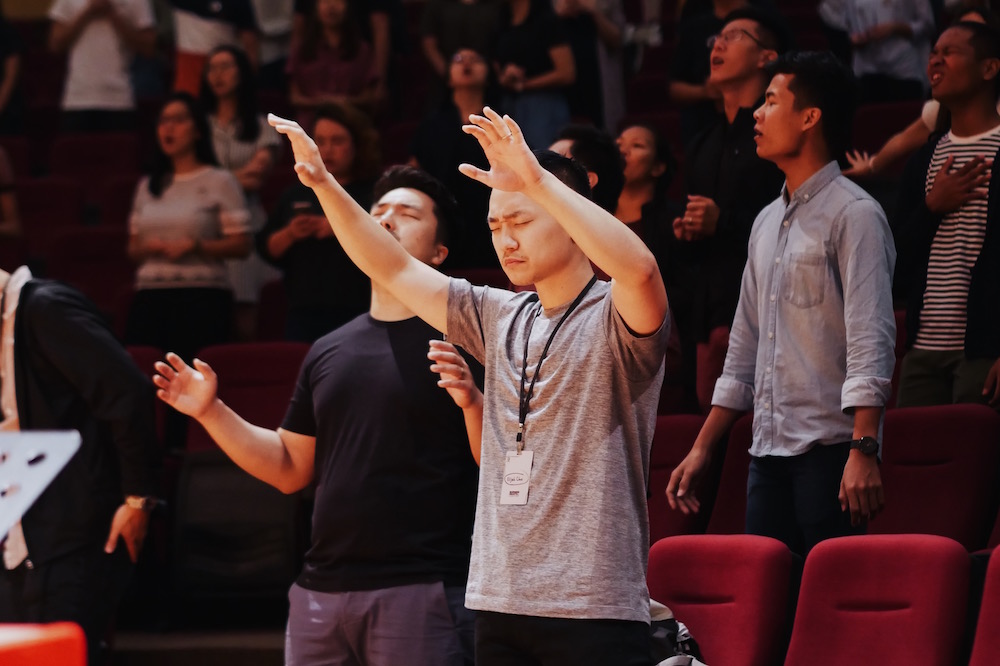
The pivot of these pictures of marriage in the Old and New Testament is the Songs of Songs, also known as the heart or the “holy of holies” of Scripture. It gives us language for the kind of longing we should have as the Bride, as a response to our Beloved’s desire for us.
“Daughters of Jerusalem, I charge you – if you find my beloved, what will you tell him? Tell him I am faint with love … My beloved is radiant and ruddy, outstanding among ten thousand.” (Song of Songs 5:8-10)
Are we ministering and labouring for the Kingdom because we are “faint with love” or “lovesick”? Do we long for God the way He longs for us? Is His dream to dwell among us and be one with us our dream?
MAKING GOD’S DREAM A REALITY
Will we be like the Bride in Song of Songs, so bursting with love for her Bridegroom that it overflows as unceasing worship and intercession in the wedding chambers of our time – the houses of prayer?
“Overflows means to boil, like a fire shut up in the bones – it means my heart is exploding with worship,” Choi explained. “God doesn’t just want day and night worship – He wants day and night explosions from the heart.”
“Take me away with you – let us hurry! Let the king bring me into his chambers. We rejoice and delight in you; we will praise your love more than wine. How right they are to adore you!” (Song of Songs 1:4)
It’s not about labouring harder, Choi shared. It’s about desiring to know the longing of God’s heart and allowing Him to consume everything inside us until there’s nothing left except agreement to His dream.
When we pursue God’s dream as a Church, the world will take notice.
“Missions is fulfilling the eternal dream of God. Do you dare to make this dream of God your dream? To manifest this eternal dream in your time and generation?”
When we pursue God’s dream as a Church, so that He will be our God and we His people, the world will take notice. This is how the Great Commission will be fulfilled.
“The Lord is looking for one thing – it’s super clear,” Choi concluded. We, the Church, are called to make God’s dream a reality so that the surrounding nations will start asking questions the way the Bride’s friends asked in Song of Songs: How is your beloved better than others, that you so charge us? (Song of Songs 5:9).
What differentiates Christianity from an unsaved world is not doctrine or good deeds. Even Judas did good deeds for three years while loving money in his heart.
What differentiates us is when loving Jesus becomes our joy and delight – our supreme pleasure – then we will give anything to fulfil His dream to once again dwell among His people as our God.
- What is your response to God’s desire to be one with us?
- How have you been living for the dream of God’s heart?
- What are some obstacles preventing you from allowing Him in?
- Will you commit to being part of the generation that fulfils God’s dream?


